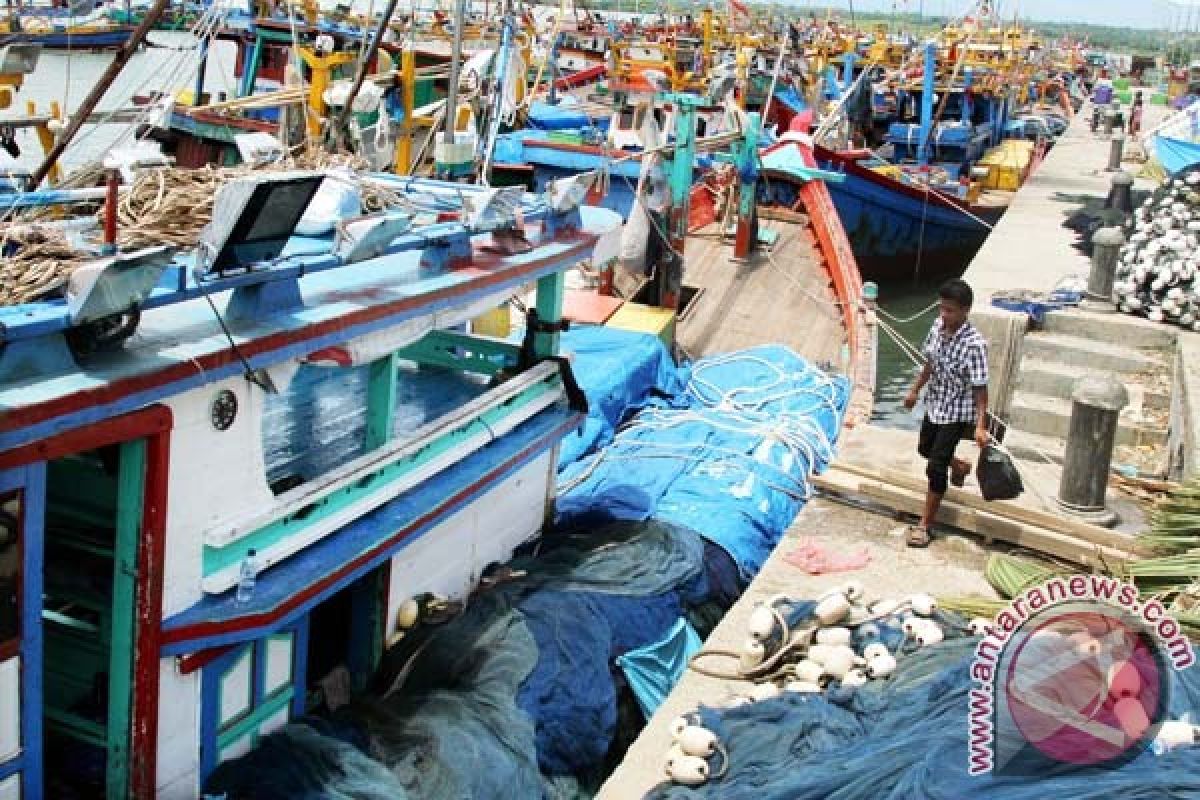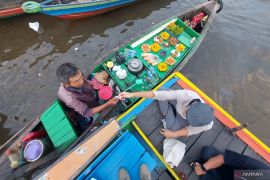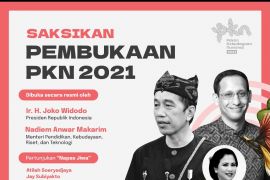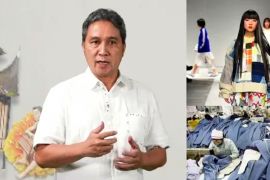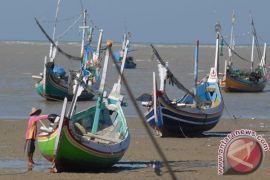Therefore, subsidized diesel oil for fishermen is very important."Jakarta (ANTARA News) - The traditional fishermen in Indonesia have been reaping the rewards of the Fishermen Welfare Improvement (PKN) program implemented by the government in 2011.
According to data from the Ministry of Marine Affairs and Fisheries, around 2.7 million fishermen live in Indonesia, of whom 95.6 percent are traditional fishermen operating along coastal areas.
Since the implementation of the PKN program, the welfare of traditional fishermen has improved significantly.
"Since the implementation of the program in 2011, the traditional fishermens standard of living has improved significantly," Marine and Fisheries Minister Sharif Cicip Sutardjo said in a written statement made available to Antara here on Saturday.
In light of this, he noted that the governments concern over fishermens welfare has so far gained tangible results.
The minister remarked that the government, through the PKN program, has continued to strengthen and improve the fishermens database so that aid can reach them on time.
"From the database of the fishermen, the government can acquire information on the characteristics of the poor families, so that aid can be provided on time," Sharif explained.
Besides, he noted that the Ministry of Marine Affairs and Fisheries has also strengthened cooperation with other government institutions and regional governments to record the number of underprivileged communities to help them.
Sharif pointed out that under the PKN program, the ministry is determined to develop 816 fishing ports (PPs) and fish landing bases (PPIs).
The minister revealed that in 2011, 100 PPs/PPIs were developed, and the number had increased to 400 in 2012, which covered 1,426 villages with 112,037 targeted poor families.
In 2013, 200 PPs/PPIs were developed under the PKN program, and in 2014, the government will develop 116 PP/PPIs.
Sharif opined that traditional fishermen should continue to receive sufficient amount of fuel oil subsidy, as it is a vital component for earning their livelihood.
"We have held three meetings to fight for the cause of traditional fishermen, so that they may receive subsidized diesel oil," the minister noted.
The minister emphasized that subsidized diesel oil for fishermen was very important, as it comprised 70 percent of the total fishing costs.
He noted that if fuel oil becomes costlier, the traditional fishermen will not be able to fish, and it will lead to stagnation in the fish-processing industry.
Sharif also opined that the fate of the fishermen was similar to the farmers who received subsidized seeds and fertilizers.
"Therefore, subsidized diesel oil for fishermen is very important," the minister affirmed.
Commenting on the governments PKN program, the head of the Indonesian Marine Council Secretariat, Dedy Sutisna, who is also former director general of the fisheries and maritime affairs ministry, stated that the program included not only assistance in providing fishing boats, but also assistance in the form of funds and other facilities.
The government has also provided other facilities, such as if a fisherman cannot go out fishing, he can still earn income.
"We hope that fishermen will always earn income. There should not be a time when they cannot earn any income," noted Dedy Sutisna.
He stated that poverty in the coastal areas had affected 7.87 million fishermen, or about 25.14 percent of the nations poor living below poverty line.
That is why the national welfare improvement program is important for fishermen.
Earlier, the Secretary General of the Ministry of Marine Affairs and Fisheries Sjarief Widjaja stated that the Government Draft Regulation (RPP) on the empowerment of traditional fishermen was intended to encourage them to form a business group to improve their economic independence.
"The RPP will encourage the fishermen who have been working individually so far to form a group of business entities to improve their economic independence," Widjaja said here recently.
He expressed hope that following the establishment of fishermen groups as business entities, their standard of living could be on par with other groups of business people.
Besides, the government has also developed the National Fish Logistics System (SLIN) to support the fishermens economic activities and improve their welfare, according to the Directorate General of Processing and Marketing of Fishery Production Saut Hutagalung.
"The development of SLIN is expected to ensure that fish can be efficiently collected and absorbed in upstream markets," Hutagalung stated here recently.
He explained that the SLIN was also expected to ensure smoother distribution of fish from production centers to downstream markets, and finally the availability and supply of fish from markets to the processing industries can be improved.
According to him, all these advantages of SLIN may help to stabilize fish prices, which are determined by the fishermen.
Hutagalung explained that fish prices will fall as SLIN will be able to reduce the number of fish being discarded due to lack of cold storages.
"We have 11.5 million fishermen families mostly living in small islands. Hopefully, SLIN can improve their businesses and increase their income," he affirmed.
(T.O001/INE/KR-BSR/A014)
Reporter: Otniel Tamindael
Editor: Priyambodo RH
Copyright © ANTARA 2014
